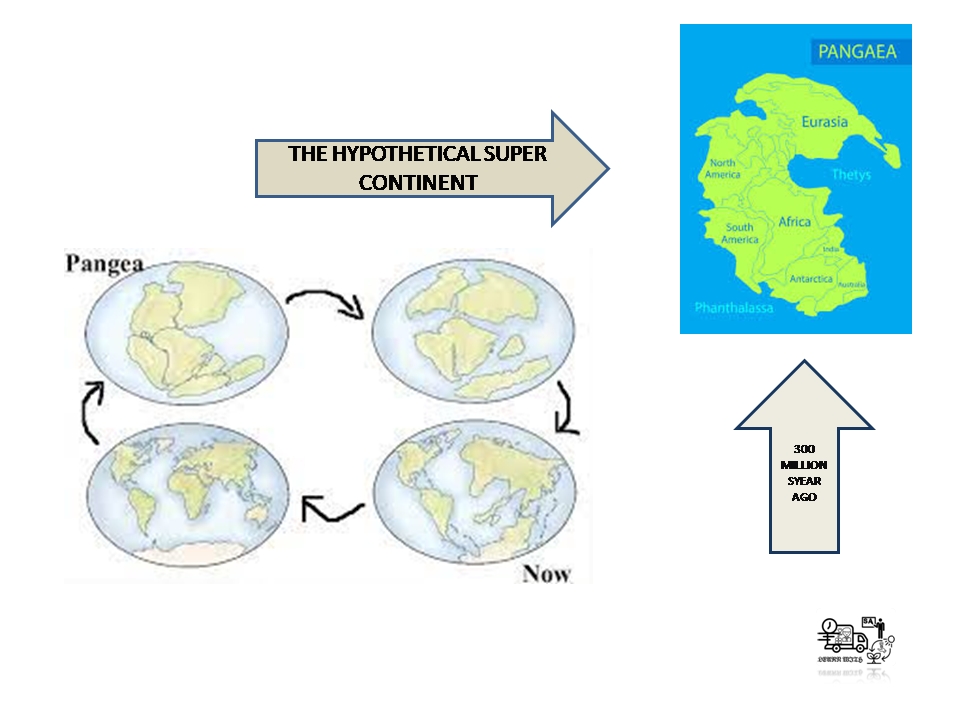
PANGEA- HYPOTHETICAL SUPERCONTINENT
Pangaea was a supercontinent that existed on the earth approximately 300 million years ago, during the Paleozoic and Mesozoic eras. The concept of Pangaea, which means "all earth" in Greek, was first proposed by the German meteorologist and geophysicist Alfred Wegener in 1912.
Wegener based his theory on the observation that the continents of the earth appeared to fit together like pieces of a puzzle and that they shared similar geological features, such as mountain ranges and rock formations. He postulated that the continents were once part of a single landmass that broke apart and drifted apart over time.
Pangaea was composed of all of the earth's current continents, as well as some that no longer exist, such as the landmass of Gondwana in the southern hemisphere. The supercontinent was surrounded by a single, massive ocean called Panthalassa.
The formation and breakup of Pangaea had a significant impact on the evolution of life on earth. As the continents drifted apart, new oceans and seas were formed, changing ocean currents and climate patterns. The separation of landmasses also allowed for the development of new species through isolation and speciation.
Today, evidence of Pangaea can be seen in the distribution of fossils and geological formations across different continents. The concept of Pangaea has also had a significant impact on the field of plate tectonics, which explains the movements of the earth's crust and the formation of geological features such as mountains, volcanoes, and oceanic trenches.
In conclusion, the idea of Pangaea represents a pivotal moment in the earth's geological history, providing insight into the forces that have shaped our planet over time. The concept has had a profound impact on the study of geology and continues to influence scientific research and understanding of the earth's history.
References:
Basic Petroleum Geology by Peter K Link
Earth: An Introduction to Physical Geology, by Tarbuck, Edward J., Lutgens, Frederick K., and Tasa, Dennis G.